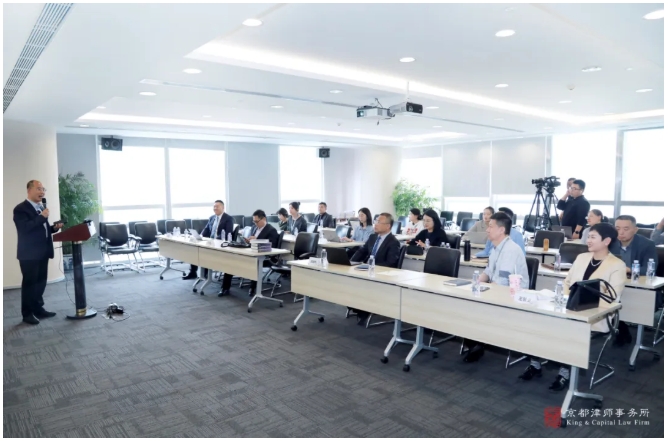On the afternoon of April 11, 2025, the 2nd session of “Criminal Defense Talks” organized by Criminal Department II was successfully held in King&Capital Law Firm. The activities were respectively presented by Mr. Zhang Chunxi, Consultant of King&Capital Law Firm, Mr. Liu Lijie, Head of Criminal Department II and Senior Partner of King&Capital Law Firm, Mr. Tang Jianbin, Director of Kyoto Food and Drug Law Research Center and Senior Partner of King&Capital Law Firm, and Mr. Wang Xintong, Senior Partner of King&Capital Law Firm, and moderated by Mr. Zhang Di of Business Management Department.
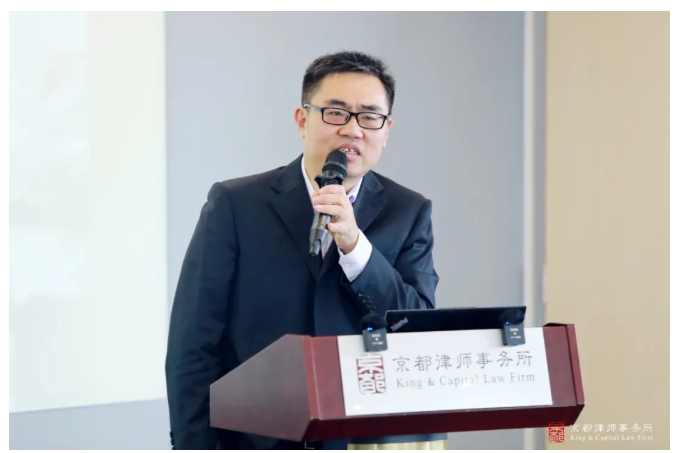
Zhang Chunxi
Counselor Zhang Chunxi firstly introduced the scope of cases in this seminar, focusing on violent and quasi-violent crime cases, and sharing around the factual findings, evidence admissibility, sentencing, policy grasp and death penalty review procedures. Zhang Chunxi consultant combined with the case pointed out that the age-old cases, the investigation and evidence collection conditions at that time have limitations, which led to the old case evidence system may have inherent deficiencies, providing a breakthrough space for the defense work. For the defense of factual evidence, should pay more attention to the core facts, key evidence. At the level of policy grasp, Zhang Chunxi consultant carries out two-dimensional analysis: focus on the legal level of the constituent elements, but also consider the political level of the social effect. Combined with practical experience, he divided the nature of cases into three categories - cases that seriously jeopardize public order, cases triggered by civil conflict, and “neutral cases” of ambiguous nature, and pointed out that the implementation of the death penalty policy varies greatly among different types of cases, and the defense strategy should be focused on them. In addition to the statutory sentencing circumstances, special attention should be paid to the subjective factors such as the pattern of guilt, the motive for the crime, the subjective malignancy, and the impact of such factors as the outcome of the crime, the mode of conduct, and the fault of the victim on the application of the death penalty. The application of punishment in death penalty cases is the result of the interweaving of discretionary factors from multiple angles and levels. Counselor Zhang Chunxi briefly introduced the historical changes in the death penalty review process, and the process of further improvement of national substantive and procedural laws after the Supreme People's Court unifiedly exercised its approval power. Mr. Zhang also analyzed the overall trend of death penalty cases nationwide in recent years, taking into account internet data, and briefly commented on typical cases with significant impact in recent years.
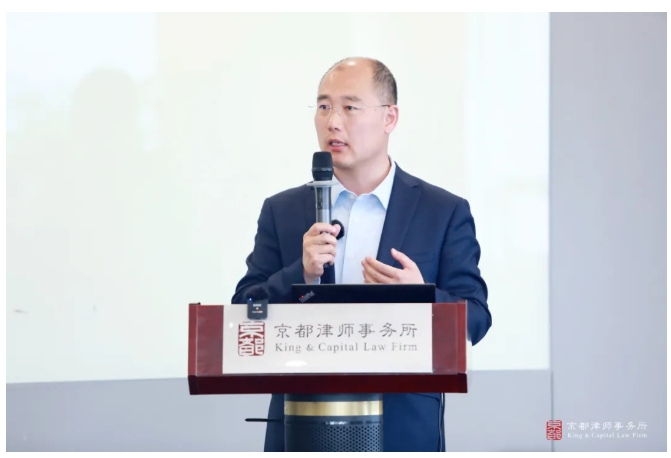
Liu Lijie
Mr. Liu Lijie pointed out that death penalty cases, as a special type of cases tried and reviewed by judicial organs at all levels in accordance with the “highest requirements and strictest standards”, have important reference value for other cases in terms of their defense ideas and methods. Liu Lijie lawyer from the case origin and trial, objective evidence and subjective evidence, evidence details and evidence corroboration, confession review and retraction judgment, sentencing circumstances and external factors, etc. five aspects, specific explanation of the death penalty case defense for other criminal cases defense reference. Finally, Mr. Liu Lijie shared a poem written by a death penalty review judge of the same office during his working period in the Supreme People's Court: “Killing to stop killing is not what I want, and no sentence is the purpose of the sentence. I am looking forward to the day when the state of God will be full of Shunyao, and my generation will rest.” With the help of this poem, Mr. Liu Lijie expressed his compassionate heart in the defense of death penalty cases, “I wish that the people in the world are not sick, why not make the medicine dust on the shelf”.
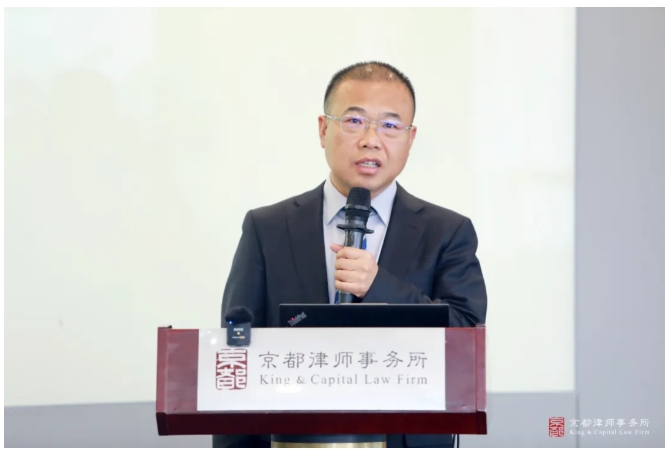
Tang Jianbin
Mr. Tang Jianbin systematically analyzed the death penalty review cases of drugs and murder cases through the form of mind map. In the section of death penalty review cases for drug crimes, Mr. Tang selected four typical cases to carry out in-depth analysis: firstly, he took Lin Mouzhi's drug trafficking case as an entry point, and focused on the application standard of death penalty for the accomplices of the upper and lower families in the drug crimes, especially for the practical difficulty of “the quantity of goods exchanged”, and put forward the point of view that the calculation could not be repeated. In the analysis of Tan Mou's drug trafficking case, Mr. Tang focused on the criteria for determining the attempt of drug trafficking, and clearly pointed out that “whether the drug enters into the transaction” should be the key point for determining the attempt of drug trafficking. Through the deconstruction of the Ami Mouqing case, Mr. Tang sorted out three major controversial points: the determination standard of huge quantity, the discretionary rule of applying the death penalty in joint crimes, and the influence of fugitive accomplice on the application of the death penalty. In addition, Zheng Mouli's case presents the difficulty of applying the death penalty in the multi-layered upper and lower family trading relationship of the same drug. In the section of death penalty review cases, Mr. Tang took the case of Lv Moulin as an example, and analyzed the impact of the identification of the deceased, the determination of the cause of death and other basic facts on the application of the death penalty. And in the case of Xiao Mouhua, he focused on the interaction of sentencing factors such as drunkenness, self-surrender and compensation, demonstrating the direction of refinement in the defense of death penalty cases.
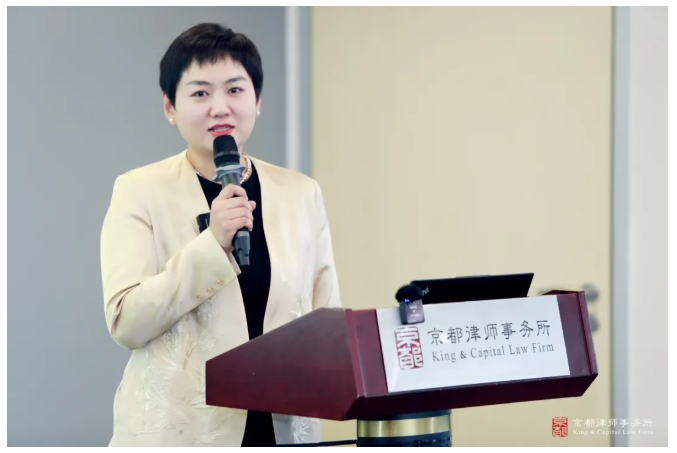
Wang Xin Tong
Wang began with the philosophical saying of Mencius, “Good deeds are not enough for governance, and law cannot be used by oneself”, which profoundly explains the dual mission of the lawyer's profession: not only to abide by the role of guardian of clients' legitimate rights and interests, but also to take on the role of the practitioner of legal justice. Standing in the perspective of globalization, Mr. Wang pointed out that the abolition of the death penalty movement in the international community continues to advance, “the death penalty is not extraditable” principle has become the basic norms of transnational criminal justice cooperation. This principle essentially reflects the game of judicial sovereignty between different jurisdictions. Through the empirical research on the first case of extradition between China and New Zealand, Mr. Wang discussed in depth the issue of sentencing commitment that may be required when extraditing cases where the death penalty can be applied, and further responded to the question of whether the sentencing commitment will lead to the judicial injustice of different sentences for the same case. Mr. Wang believes that in extradition cooperation, there are bound to be systemic differences between countries with different political systems and legal traditions, which requires all parties to uphold an attitude of mutual respect and seek a balance between judicial sovereignty and human rights protection. This balance is not a simple compromise, but based on a deep grasp of the laws of international judicial cooperation. Mr. Wang further introduced the practice space and strategy points for the lawyers of the requesting country, the requested country and the extradited person, which provided practical guidelines for lawyers to intervene in transnational extradition cases.
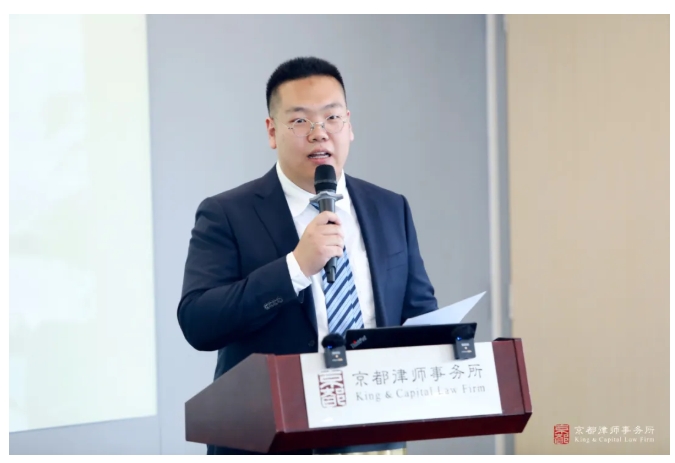
Zhang Di
Host Zhang Di, with his unique perspective and profound professional accumulation, made a wonderful comment on the sharing of all the guests, and the 2nd session of Criminal Defense Talks was successfully concluded with warm applause.
